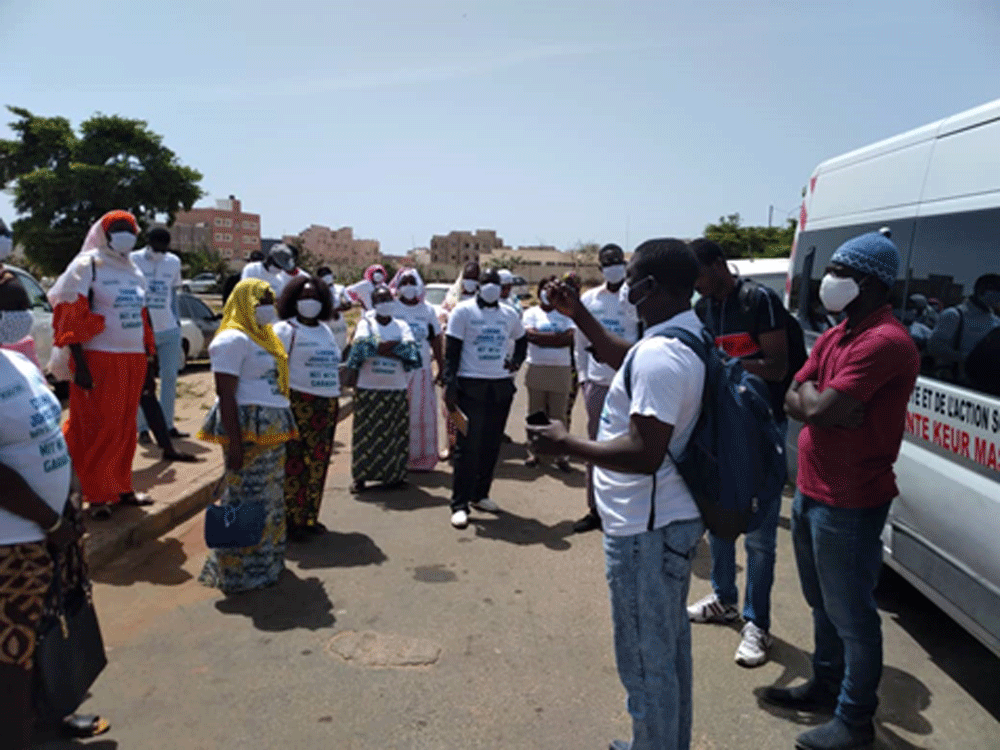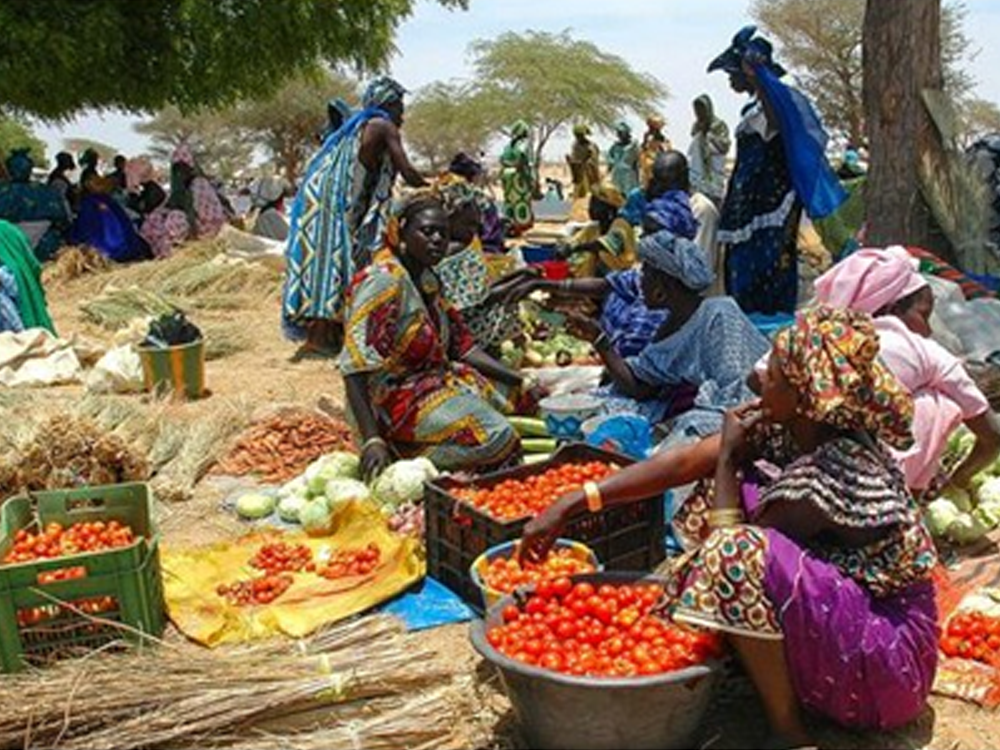Covid-19 is a universal challenge, and one that is exposing and exacerbating economic and social divides around the world. In turn, these divides are magnifying the spread of the virus. Whilst the global and national institutions that help provide stability and support prosperity and justice are facing their biggest challenges for many decades in trying to navigate a way forward in such difficult times, citizens and communities increasingly are generating knowledge and evidence that shape our collective responses.

Covid-19 provided a striking backdrop to the first 2020 Victoria Forum webinar in which IDS was pleased to partner with the International Development Research Centre (IDRC) in a discussion on “Our Shared Future in the Wake of a Global Pandemic: impact on economic, social and environmental divides”.
Covid-19’s impact in Africa
As weeks of uncertainty have turned into months of crisis, the Covid-19 pandemic has so far claimed more than 380,000 lives across the world, By May 27th (the date of the webinar) there had been 116,667 confirmed cases and 3496 deaths in Africa. In response to this relatively low number compared with other global regions, some are suggesting that Africa is actually more resilient to this pandemic compared to other epidemics such as Ebola, yellow fever, malaria. Others believe that it is just a matter of time lag and project that millions will die in the future. The Bureau of Economic Prospective (Bureau de Prospective Economique -BPE) of Senegal, for example, designed an index for measuring and monitoring the severity of Covid-19 in countries in order to capture the degree of resilience to the disease. Based on this index, Senegal was ranked for resilience as 1st in Africa and 3rd worldwide in April 2020.
We do not yet know what will be the exact outcomes of this unprecedented and multidimensional pandemic in the long run, but it is already clear that people’s lives are being impacted by the disease, from the trauma of loss of loved ones, from loss of income, and from lack of social proximity and security. It is worsening poverty, political and social tensions across the African sub-regions, and inequalities between urban and rural areas, between social groups, and between men and women. Research from different academic backgrounds and contexts is already documenting the complexity of this pandemic and its implications for people (for example in rural areas), medical practice, and policy.
The existing inequalities and poor living conditions are the comorbidities (pre-existing conditions) that may later accelerate the spread of the Coronavirus among African populations. This in turn has global implications, since Covid-19 has a global impact for sustainable development and progress towards the Sustainable Development Goals (SDGs) is compromised. What happens in Africa ultimately affects our global progress, and vice versa.

Social impacts are real
The impacts of Covid-19 are often viewed from an economic prism – the jobs lost, economic recession, market stocks plunging. There is no doubt that the economic impacts affect poverty levels and welfare, but the fundamental changes are operating within our social systems. This is raising some really pressing social questions for which evidence is urgently needed:
- How is Covid-19 playing out in the social reality of African local communities? What are the social changes that this new “normality” is operating?
- How is Covid-19 is increasing inequalities in Africa, and the burden on the underprivileged groups?
- Who are the most vulnerable to its impacts in Africa, and why?
These questions are important, because Covid-19 is significantly exacerbating existing social inequalities. Following the rest of the world, many African governments have taken drastic barrier measures: social distancing, lockdowns, mobility restrictions within and across borders, curfew (in Senegal) to contain the spread of the coronavirus, plus safety nets. How are these measures affecting people’s livelihoods and social life which is good for mental health? For example, in Senegal, Thiam and Niang, 2020 have shown that there are now many small farmers who cannot sell their products because of the lockdown, pastoralists who can’t take their cattle to places where pastures and water are available, poor households in urban slums who cannot access food, women’s groups who are not meeting anymore for their “tontines” (traditional credit revolving and small savings mechanism). Food systems are under ever greater stress (Moseley, 2020). Hardship and social inequalities are worsening, due partly to the lockdowns and lack of access to community/social networks, and due to lack of access to remittances sent by rural migrants, and immigrants, many of whom are located in France, Italy and Spain. The consequence is that vulnerable households with the least resources will suffer the most if social services and safety nets (cash transfer, food aid) are not quickly provided.
Authorities are also trying to grapple with this situation which is leading to social tensions and violence, hence, in many parts of Africa, from Lagos, to Johannesburg and Dakar, government are now easing the restrictive measures even in the face of possible rises in infection and mortality rates.
A transformed future
Viewing this complex situation through social science and anthropological lenses, we see three major long-term impacts in Africa that we believe are significant enough to signal future paradigmatic shifts
1. Disintegration of traditional social structures such as family and social networks.
Interpersonal relationships are transformed with social distancing, and there is less physical proximity between family and community members. Individuals or nuclear families cannot provide for all vital needs in the African context, especially in poor communities. Resilience does not lie in Africa health care systems (many of which are significantly in need of major strengthening) but instead relies on families and community solidarity, particularly the contribution and role of women, through traditional safety nets and most importantly through the cultural habitus of patient care within the family unit. Are we learning sufficiently well from how African communities have dealt with diseases and pandemics in the past and current times?
2. Disappearance of the gerontocracy.
The elderly, guardians of cultural transmission of knowledge and peace are dying, taking with them wisdom, knowledge and life experience. Are the youth prepared to take over in Africa?
3. A redefinition of the sacred is underway
Religion has been very affected by Covid-19. The spiritual, religious guides are losing their power, and their aura. They have not been able to gather the faithful to pray together whether in the mosques, in the churches, or in the synagogues. What will provide the social cohesion that is being lost by these collective expressions of faith?
4. How do we move forward?
This pandemic has reminded us as human beings, that we are at same time the subjects and the objects of its outcomes. We can and must act ourselves in response to this crisis, by reengaging with citizens and local communities who are most directly affected. We propose three key steps needed in the Africa context, but which we believe are also relevant globally:
- Building community resilience through community engagement. This can play a key role in mitigating the social impact of the pandemic in Africa and indeed everywhere by creating a large, collective movement of all the social forces. Following the Sustainable Development Goals principle of inclusion (Leave No-one Behind), this requires an individual and collective responsibility for prevention measures and their acceptance – by community leaders, youth, women, marginalized groups.
- Building “trust” on the community’s “turf” for effective engagement. Challenging as it is, this pandemic is offering many positive opportunities and people are quickly coming together to provide support and co-constructing innovative solutions. For example, young African scientists are creating domestic solutions that are not expensive (hand sanitizers, hand washing equipment, reusable masks). These responses are providing us with important lessons that can be documented, shared and provide further opportunities for learning, research-action and transformation.
- Building collective aspirations for positive change through transformations that integrate inclusion, equality, and security, and which will be carried through in evidence-informed policies for greater and durable impact on people’s lives.
We look forward to further discussion on these issues and welcome ideas for debate and collaboration within the Victoria Forum.